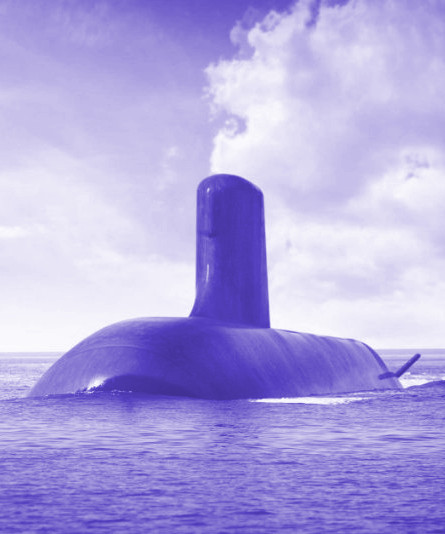AUKUS expansion coming
 Australia's $300-billion-plus AUKUS pact is inviting new allies - and fresh doubts - into the fold.
Australia's $300-billion-plus AUKUS pact is inviting new allies - and fresh doubts - into the fold.
Leaders have used the third anniversary of the AUKUS pact to announce expanded defence cooperation with Pacific nations.
The AUKUS defence partnership, which brings together Australia, the United Kingdom, and the United States, is set to broaden its scope by integrating other nations into its advanced technology projects.
The move aims to address the growing geopolitical challenges in the Indo-Pacific region.
Leaders from the founding AUKUS nations have confirmed that South Korea, New Zealand, and Canada are under consultation for potential collaboration on advanced military technologies under AUKUS’s second pillar.
The announcement was made on the third anniversary of the AUKUS alliance, which proponents say is central to maintaining a “free and open Indo-Pacific”.
The expanded partnership comes amid heightened regional tensions driven largely by China's perceived assertiveness.
The AUKUS initiative, first unveiled in 2021, has a two-pillar structure.
The first pillar involves the development of nuclear-powered submarines for Australia, while the second focuses on shared technological advancements in areas such as hypersonics, artificial intelligence, and undersea capabilities.
The inclusion of countries like South Korea and New Zealand in advanced capability development represents a significant step in bolstering regional defence cooperation.
“Recognizing these countries’ close bilateral defence partnerships with each member of AUKUS, we are consulting with Canada, New Zealand, and the Republic of Korea to identify possibilities for collaboration on advanced capabilities under AUKUS Pillar II,” the AUKUS leaders said in a joint statement this week.
Despite the optimistic tone of the government’s statements, significant concerns remain, particularly regarding Australia’s commitment to Pillar I of the AUKUS agreement.
The nuclear-powered submarines central to this pillar are set to cost Australia up to $368 billion by 2055.
The submarines will be built with technological support from the US and UK, with the first vessels expected to be operational by the 2040s.
However, concerns persist about delays and potential budget overruns, as highlighted by a US Navy investigation earlier this year which indicated that Australia’s acquisition of the Virginia-class submarines might be delayed by several years.
Former Australian Foreign Minister Gareth Evans has been one of the most vocal critics of the AUKUS pact.
He recently described the agreement as having an “indefensibly high” cost, not only financially but also in terms of Australia’s sovereignty.
“It defies credibility to think the US will sell at least three Virginia-class submarines to Australia without an understanding that Australia would be alongside the US in the event of a war against China,” Evans said.
He further criticised Prime Minister Anthony Albanese for not conducting a comprehensive review of AUKUS upon coming to power, calling the lack of scrutiny “depressing for those of us who’ve long nurtured the belief that Australia is a fiercely independent nation”.
Beyond the direct criticism of the submarines’ cost and timeline, Evans and other sceptics have questioned whether Australia will truly maintain sovereign control over the submarines, a point that Albanese has consistently defended.
The former foreign minister called this claim “a joke in bad taste”, asserting that Australia would likely be drawn into any conflict involving the US and China.
He also pointed to the extensive US demands on Australia, including the expansion of air force and naval bases to accommodate US military assets, further complicating the sovereignty issue.
In addition to its engagement with South Korea, Canada, and New Zealand, AUKUS leaders have also been in talks with Japan.
Japan’s involvement, particularly its expertise in maritime autonomous systems and other technological fields, is being considered for further integration into the Pillar II projects.
However, concerns remain that Japan's increased defence cooperation through AUKUS could worsen its already strained relationship with China.
This sentiment was echoed by geopolitical experts, who note that any AUKUS expansion could exacerbate tensions with Beijing.
Prime Minister Albanese is expected to discuss further developments in Australia’s submarine acquisition during his upcoming visit to the United States.
There, he will meet with US President Joe Biden, as part of a broader summit involving the Quad alliance - comprising Australia, the US, Japan, and India.
Although the Australian government continues to advocate for AUKUS as crucial to the nation’s security, questions regarding cost, delivery, and Australia's autonomy persist.







 Print
Print



